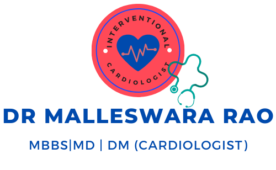Managing Low Blood Pressure: Effective Home Remedies and Tips
**Low BP, also known as hypotension,** occurs when blood pressure is lower than normal. A normal BP level should be around 120/80 mm Hg. If blood pressure falls below 60/90 mm Hg in women and 70/100 mm Hg in men, it is considered low BP.
If you have low BP, symptoms like dizziness, blurred vision, early fatigue, nausea, vomiting, headache, chills, inability to work for long periods, and occasional fainting may appear. Sometimes, if BP drops too much, there is a risk of death.
There are many causes of low BP. Dehydration, heart disease, vitamin B12 deficiency, improper production of adrenaline hormone, infections, taking high doses of medication for high BP, excessive alcohol consumption, and drug use can all cause low BP.
BP can be brought back to normal if the symptoms of low BP are identified and changes in lifestyle and food habits are made. People with long-term low BP should take precautions to avoid high BP.
- Foods rich in folate: Folic acid helps in the production of red blood cells. Anemia can cause low BP problems. Leafy greens, lentils, chickpeas, peas, kidney beans, oranges, papaya, beetroot, peanuts, broccoli, and okra are rich in folate.
- Foods rich in iron: Iron-rich foods such as leafy vegetables, pulses, chickpeas, kidney beans, sesame seeds, dry fruits, jaggery, and pumpkin seeds are good to include in the diet. For non-vegetarians, chicken, mutton, fish, and liver are excellent sources of iron. These foods can help bring blood levels back to normal and reduce the problem of low BP.
- Foods rich in vitamin B12: Vitamin B12 deficiency can cause anemia, which in turn leads to low BP. Your diet should include vitamin B12-rich foods like eggs, dairy products (such as milk, yogurt, and cheese), fortified cereals, fortified soy products, and paneer. For those who consume meat, fish, chicken, liver, shrimp, and clams are excellent sources of B12.
- Take liquid food: Low BP can also occur due to dehydration. If you are suffering from low BP, drink enough water daily and consume more fresh fruit juices.
- Take enough salt: People with low BP should consume enough salt in their diet, but too much salt can lead to other health problems.
- Exercise regularly: People suffering from long-term BP should exercise regularly every day. Slow breathing, light yoga, and meditation are recommended. Avoid lifting heavy weights and running for long periods. If you feel lethargic or sweat profusely, take care.
- Avoid sun exposure: BP patients cannot tolerate high temperatures. Be especially careful in summer. Try to stay in a normal temperature environment as much as possible.
- Change positions slowly:Do not stand up suddenly. Doing so can cause a sudden drop in blood pressure. Get up slowly from the bed and also rise slowly from a chair.
- Compression stockings: These special types of socks help reduce pressure on the blood vessels in the feet and legs, improving blood circulation. Compression stockings can reduce BP symptoms and should only be used after consulting a doctor.
- Eat small meals: Eating too much at one time can cause a sudden drop in blood pressure. So, eat small meals more often.
Also, make sure you get enough sleep, and use more pillows to elevate your head while sleeping. Sleeping with your head slightly elevated reduces the effect of gravity on blood circulation. Avoid standing for long periods; prolonged standing can cause blood to pool in the legs, lowering blood pressure. Ensure your diet is high in protein and include more herbal teas.
If you have diabetes, keep your blood sugar levels under control. If your blood levels are low, take medications or injections to increase them.
